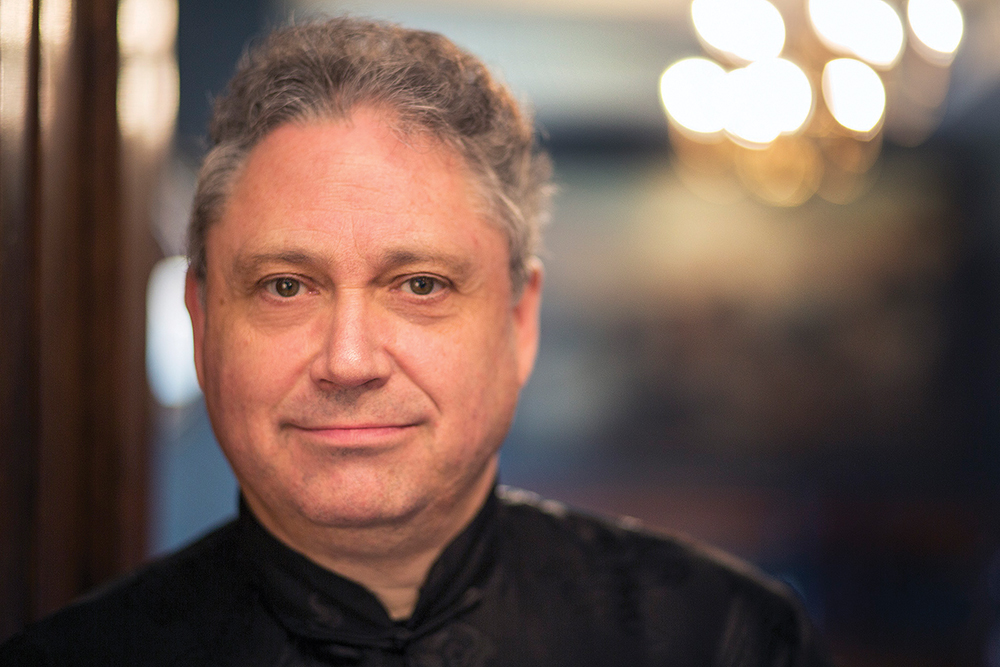Richard Egarr, music director for the Academy of Ancident Music, talks about his passion for early music
An internationally acclaimed period instrument orchestra, the Cambridge-based Academy of Ancient Music has been breathing a new lease of life into ancient music since it was founded in the 1970s. Performing using authentic traditional instruments, they explore the sound-worlds known to great composers like Bach, Handel and Haydn, presenting a rich programme of concerts throughout the year. Their raison d’être? To resurrect baroque and classical music through edge-of-your-seat live performances.
“A big misconception about early music is that it is some kind of museum-like preservation of past repertoire,” explains Richard Egarr, the orchestra’s music director. “The point of it is to make this old music alive and relevant for today.”
Richard himself discovered the world of early music when studying at Clare College here in Cambridge. “There was a harpsichord in the chapel, so I just started playing it with a friend from Trinity, Mark Levy,” he explains. “Then Andrew Manze [later associate director at AAM] came up the following year to Clare College and we formed a group called The Cambridge Musick, along with a recorder player from King’s College, Robert Ehrlich. My first inspiration and awareness of historically-informed performance though came at 16 when I was at Chethams School of Music in Manchester. I listened to David Munrow’s LP boxed set Music in the Gothic Era, which totally blew me away.”
“The point is to make this old music alive and relevant“
From there, Richard went on to perform with the AAM as a harpsichord soloist, becoming a director in the early 00s and then the music director in 2007. He’s travelled around the world with the orchestra, playing everywhere from Beijing to the Thames, when the AAM sailed up the river playing Handel’s Water Music as part of the Diamond Jubilee Pageant.
This April, they take on the music of Haydn and Dussek in Saint & Sinner, taking place at West Road Concert Hall. “It will be a fully interactive and lively experience of music both familiar and unknown,” says Richard. “Everyone knows Haydn’s ‘Surprise’ symphony but his Symphony No. 93 is just as surprising, as you will see – there is an orchestrated surprise ‘fart’ in the second movement!”
Audiences will also have a chance to get better acquainted with 18th century London’s resident musical bad boy, Jan Ladislav Dussek: a notorious seducer of princesses and rumoured revolutionary whose personal life was every bit as colourful as his musical career. “He was quite a mover and wheeler-dealer,” enthuses Richard. “In the last decade of the 18th century he was living and working in London. He went into a joint publishing venture with his father-in-law and the notorious librettist Lorenzo da Ponte. When the business failed, he left London, leaving his wife and daughter, and his father-in-law and da Ponte facing imprisonment. He re-emerged in Paris and later in Germany, where he famously led a debauched and hedonistic lifestyle. He was certainly skilled at finding favour with the upper echelons of society, and leaving when things got rough.”
Have a listen for yourself on 12 April, tickets are available via Cambridge Live.
cambridgelivetrust.co.uk/tickets

